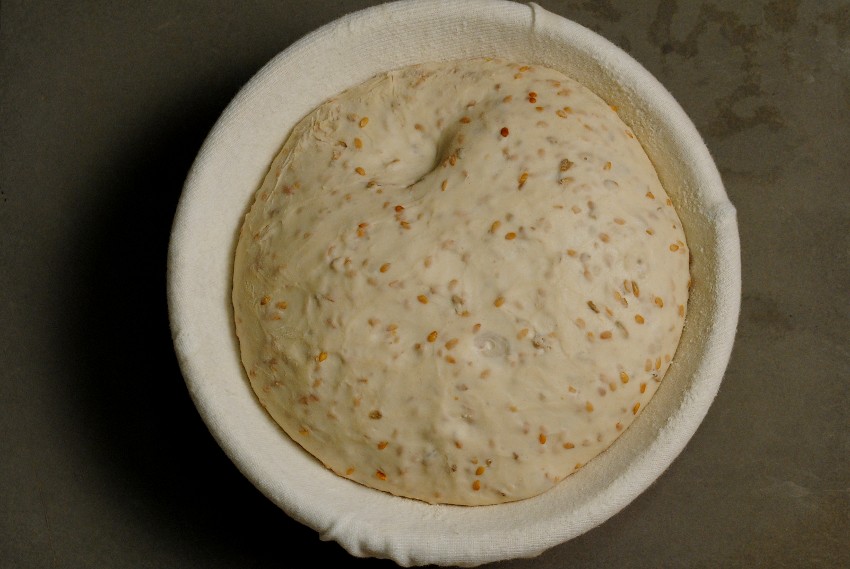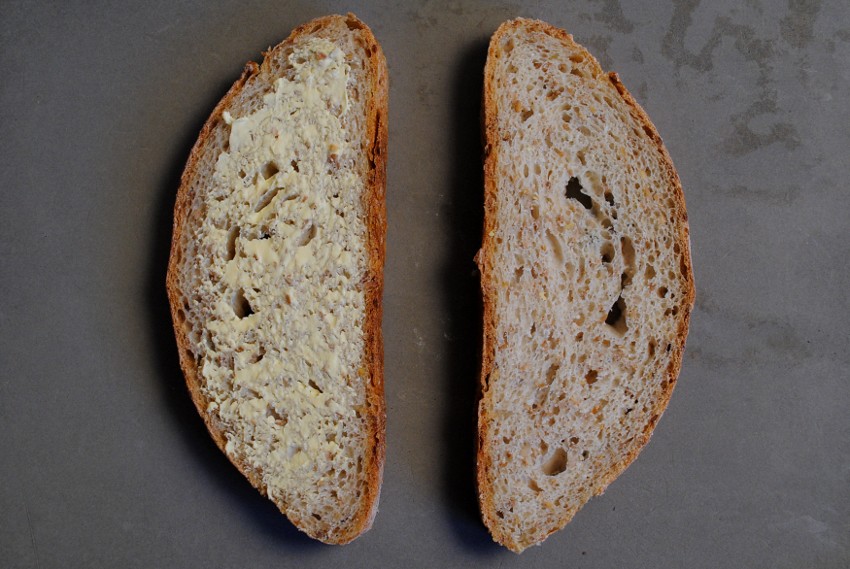Formula: found
About that multigrain loaf: while it’s a challenge to get out of bed most days, I have managed some baking over Christmas and New Year and have worked out, more or less, the recipe I used for the multigrain loaf I posted a while back.
The first step is the sponge – this builds up the sourdough starter:
100g strong flour
100g water
50g starter
I’m assuming a starter made with 50/50 flour and water (i.e. 100% hydration), but it isn’t critical. My starter is actually 80% hydrated, but the difference it makes overall is so small as to be insignificant.
Mix the ingredients together and leave to ferment overnight at room temperature.
You can incorporate the seeds dry, but Hamelman and others advocate soaking them in boiled water. Hamelman calls this preparation a ‘soaker’, which is entirely logical but somehow sounds revolting to me. Doing this does make them more tender in the finished loaf. It will also make the dough that little bit stickier, so I’ve accounted for that by slightly reducing the amount of water from the original recipe.
60g seeds (I used half linseeds and half chopped rye, but it’s a question of preference: use what you like/have to hand)
80g boiling water
Pour the boiling water over the seeds in a heatproof bowl and leave overnight.
The following morning (when you haul yourself out of bed…) prepare the dough:
200g sponge
325g strong flour
All of the soaker
165g water
4-5g salt
You may recall that the original recipe included a small amount of baker’s yeast. I left it out as my starter is pretty vigorous.
Knead the dough for 10 minutes – it’s fairly sticky but it will firm up a bit by the time you finish. Bulk ferment until doubled in size – for me it took about 3 hours, but this will vary depending on your starter. Once risen and puffy, turn out onto a floured worksurface and shape into a boule or batard, then leave to prove in a banneton. Again, this will take 3-4 hours at average room temperature.
Once doubled in size, bake in as hot an oven as you can manage – 240°c to 250° if you have that kind of horsepower – for about 40 minutes.
Recently I’ve been reading the Meditations of the Roman emperor and student of Stoic philosophy Marcus Aurelius, in a search for some peace of mind. If that makes me sound tremendously erudite I assure you that my erudition is pretty half-baked, if you’ll pardon the horrible pun. I did encounter an interesting quote, however, with which I shall leave you:
“Bread, for instance, in the course of its baking, tends to crack open here and there, and yet these very cracks, which are, in a sense, offences against the baker’s art, somehow appeal to us and, in a curious way, promote our appetite for the food.”
What do you make of that?


